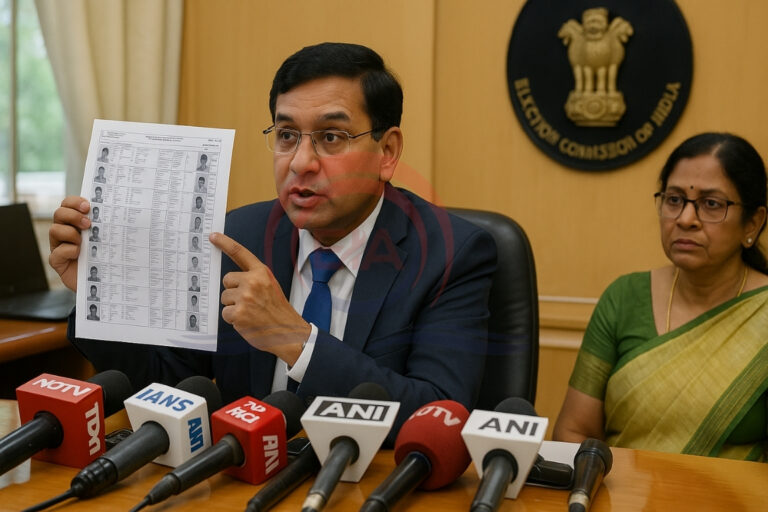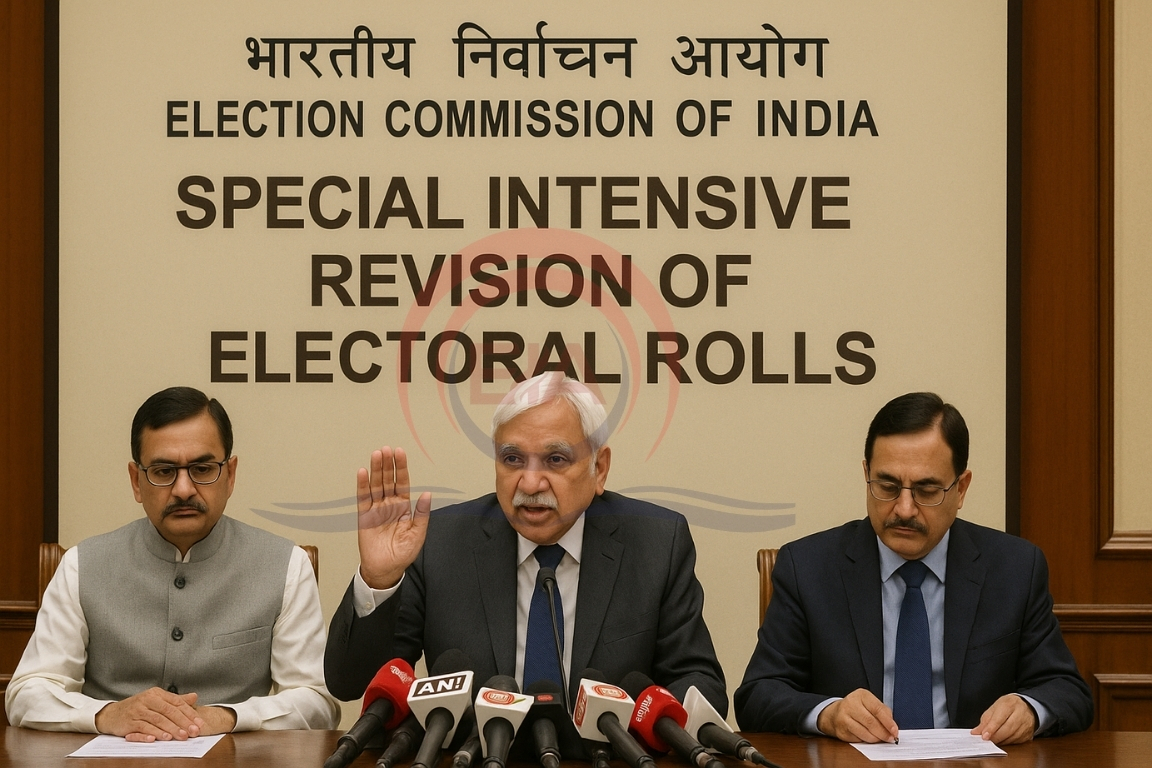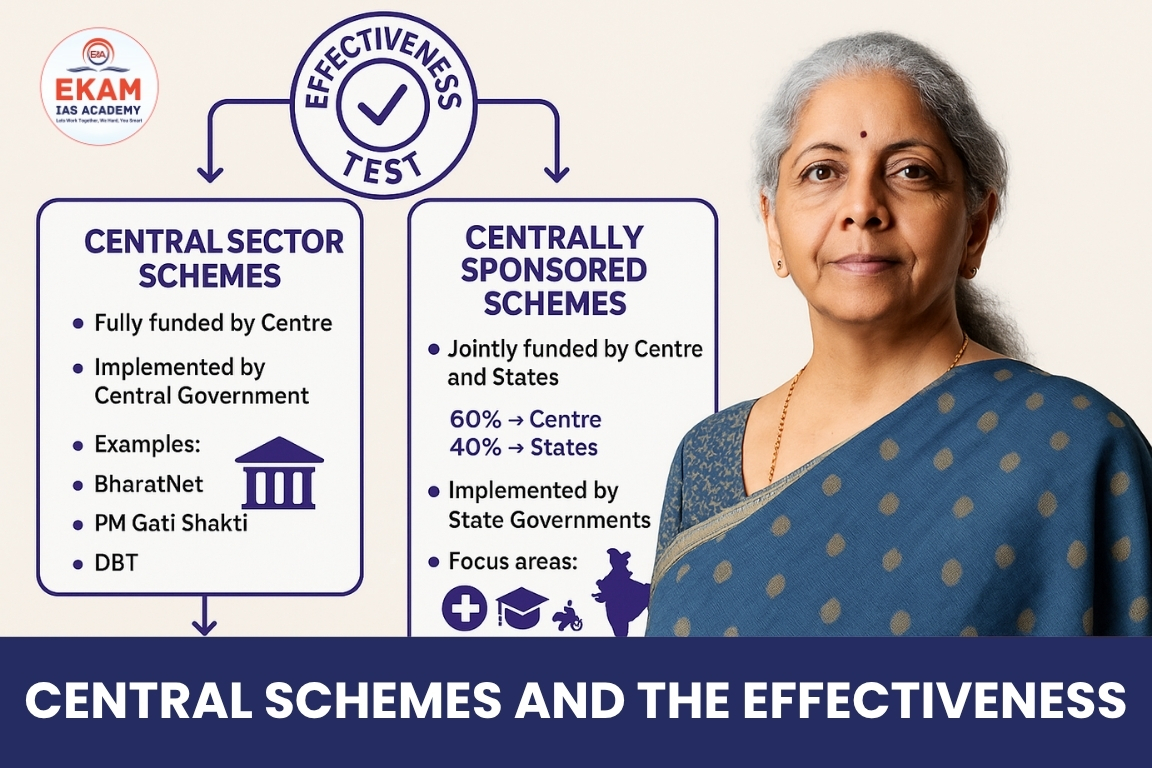The Election Commission of India (ECI) began a Special Intensive Revision (SIR) of voter lists starting from Bihar, covering nearly 8 crore voters, and plans to expand it nationwide. The secrecy, large-scale deletions, and lack of data disclosure have raised concerns over transparency and electoral integrity.
What is Transparency?
- In governance, transparency means open decision-making where citizens have access to information about policies, procedures, and actions, enabling public scrutiny and accountability.
- Ensures trust in institutions, prevents misuse of power, and safeguards democratic processes.
Large-Scale Deletions in Bihar
- Draft list after Phase 1 shows 65 lakh names deleted (≈ 27,000 per constituency).
- Number exceeds winning margin in most constituencies (2020 polls).
- No public access to full deleted names with reasons — making verification impossible.

Lack of Data Disclosure
- ECI claims sharing booth-level deletions with political parties but without reasons.
- Without granular data, there is a risk of wrongful disenfranchisement, especially among marginalized groups.
Unclear Rationale for Nationwide SIR
- ECI affidavit cites political concerns about inaccuracies but omits details of its “independent appraisal.”
- No explanation for starting from Bihar during monsoons, when verification is difficult.
Citizenship Verification Controversy
- All voters except those in Bihar’s 2003 rolls must now show documents (passport/birth certificate) to prove citizenship.
- Sparks fears of a backdoor National Register of Citizens (NRC).
- Records of 2003 revision not available in public domain.
Risks of Opaqueness
- Wrongful deletion = disenfranchisement.
- Loss of voting rights can lead to more severe consequences under the Citizenship Act, 1955.
- Weakens trust in elections and institutions meant to protect democracy.
Ensuring Transparency in ECI’s Work
- Publish full voter deletion/addition lists with reasons.
- Release independent appraisal reports before nationwide roll revisions.
- Maintain and digitize past electoral revision records.
- Provide public notice and stakeholder consultation before major exercises.
IMPORTANT CONSTITUTIONAL PROVISIONS ENSURING INDEPENDENCE AND TRANSPARENCY OF THE ELECTION COMMISSION OF INDIA (ECI)
Article 324 – Superintendence, Direction, and Control of Elections
- Vests superintendence, direction, and control of elections to Parliament, State Legislatures, President, and Vice-President in the ECI.
- Ensures an autonomous constitutional authority for conducting free and fair elections.
Appointment of Chief Election Commissioner (CEC) & Election Commissioners (ECs)
- Appointed by the President (Art. 324(2)) based on law or executive decision.
- 2023 Supreme Court ruling (Anoop Baranwal case) mandated appointment via a committee of PM, Leader of Opposition, and CJI till Parliament enacts a law, enhancing transparency.
Security of Tenure – Article 324(5)
- CEC can only be removed in the same manner and grounds as a Supreme Court Judge (by Parliament with a special majority).
- ECs can be removed only on the recommendation of the CEC, preventing arbitrary dismissal.
Conditions of Service
- Salaries, allowances, and other conditions of service of CEC/ECs are charged on the Consolidated Fund of India — cannot be reduced during their term.
- Financial independence reduces executive influence.
Constitutional Safeguards & Judicial Oversight
- Judicial review acts as a check on arbitrary decisions, ensuring transparency and accountability.
Conclusion:
A transparent, accountable ECI is vital for free and fair elections. Large-scale voter verification without openness risks disenfranchisement, erodes democratic trust, and undermines the credibility of electoral outcomes.





